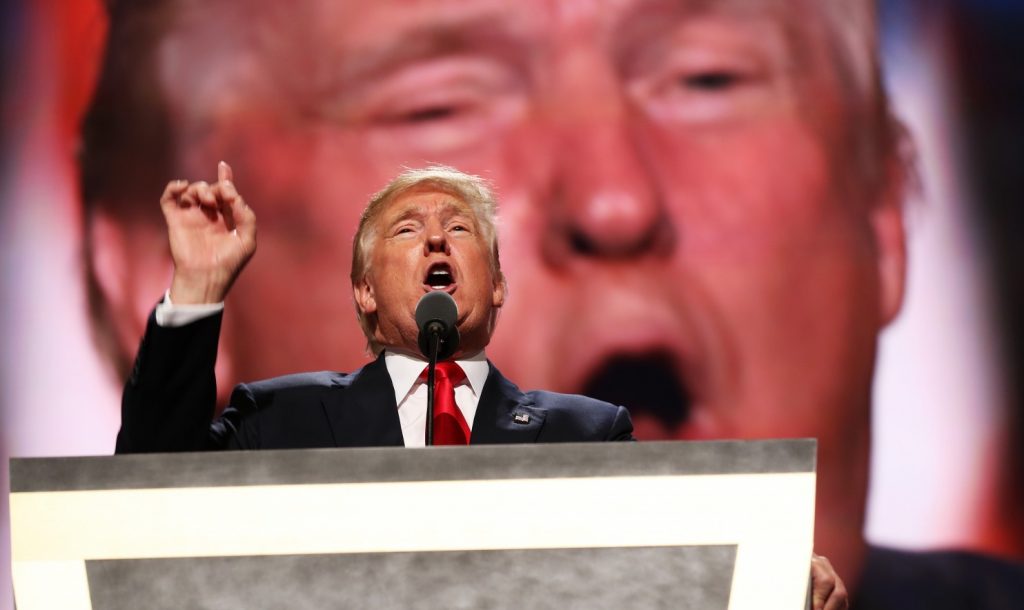The election of Donald Trump to the White House now paves the way for Beijing to exert more influence and control in the region. It will also leave long-time allies nervous, and puts the US at economic and strategic risk, writes Hunter Marston.
With the election of Donald Trump, American voters voiced support for “America-first” isolationism, rejecting the likely continuation of Barack Obama’s liberal internationalism. Southeast Asia will almost certainly shift to the backburner and lose the high level of attention it received during the Obama years. The implications for regional trade and security are grave, and mostly negative.
Trump has openly questioned the value of US alliances in Asia and even suggested that South Korea and Japan should acquire nuclear weapons to fend for themselves. This cool indifference to the security of our Asian allies belies a fundamental misunderstanding of the benefits the United States derives from overseas alliances and basing agreements, and it opens the possibility of catastrophic conflict sparked by nuclear brinkmanship.
In Southeast Asia, risk of nuclear conflict may be absent, but the withdrawal, or weakening, of the US security commitment enhances China’s influence to its south and will leave the US outside the regional trade architecture.
The Philippines, which under populist President Rodrigo Duterte has tilted away from the United States and sought closer relations with China, will likely continue in this direction – though Trump and Duterte, who has been dubbed “the Trump of the East,” may find something in common with each other, which could in turn warm the frosty US-Philippines relationship.
Meanwhile, Malaysia’s Prime Minister Najib has strengthened security and economic ties with China, causing concern in Washington that it is losing traditional security partners to Beijing.
Singapore’s Prime Minister Lee Hsien Loong has voiced his concern that the US is pulling back from Asia at a time when continued American resolve is crucial to stabilising the region. The country is an important security partner for the US, allowing access to American surveillance planes and an aircraft carrier, which contribute to peace in the South China Sea. It also hosts more than 3,600 American companies and enjoyed $47 billion in two-way trade in 2014-2015.
But, as PM Lee has warned, if the US fails to pass the Trans-Pacific Partnership, it will be leaving the bride “waiting at the altar” and causing friends in the region to doubt not just our economic investment in the region, but the rigor of our security commitments as well.
The Trans-Pacific Partnership, which would bring together the United States, Japan, Malaysia, Singapore, Vietnam, Brunei, Australia, and New Zealand, is all but dead in the water. There is no conceivable scenario in which Donald Trump, who has called the TPP “a terrible deal,” will take up or renegotiate the trade deal.
Meanwhile, the Regional Comprehensive Economic Partnership (RCEP), which includes China but not the United States, is nearing completion. Missing out on a privileged place at the centre of global growth, Asia, will be a huge drag on the US economy. It will negatively impact American exports, consumers (in the form of cheap imports), as well as manufacturing and services jobs.
Finally, President Trump will assume the White House at a moment of utmost consequence for the global balance of power, as China overtakes the United States as the world’s largest economy and increasingly seeks to extend military power outward on its periphery. Southeast Asian countries desirous of continued US engagement and leadership in the region, military and economic, may align with Beijing in droves. Decades-old treaty alliances and emerging security partnerships will suffer a blow. The Philippines’ recent pivot toward China (and away from the United States) may appear prescient if other Southeast Asian countries feel impelled to make a choice between one of the two superpowers.
Beijing should be quite pleased. Hillary Clinton, it was believed, would have taken a more assertive position on China’s now-routine bellicose behaviour in its near backyard. Donald Trump, on the other hand, appears likely to look the other way and instead seek to strike a deal with Beijing. While too early to conjecture what such a deal may look like, it would most likely entail the US scaling down its military presence in the Western Pacific, acceding to Beijing’s territorial claims in the South and East China Seas (as well as sovereignty claims over Taiwan and Hong Kong), and refraining from criticizing China’s human rights abuses and undemocratic governance.
Beijing may feel empowered to pressure US allies and partners in Southeast Asia to cut ties with Washington. A distracted or disinterested American President, meanwhile, would be less likely to see this as a threat to US interests in Asia, and Southeast Asian countries may have little choice but to bandwagon with China for protection and economic benefits.
In the end, the US turn toward isolationism only harms American economic prospects and security interests. It also imperils the US-led order in the Pacific that has endured since the end of World War II. Donald Trump’s election signals a national mood shift in the United States away from American engagement overseas, even as an increasingly globalised world demands connectivity and open trade to compete successfully.
American allies in Southeast Asia may come to see President Obama’s rebalance to Asia as the heyday of US engagement. What comes to pass may be the emergence of a new, regional order in Asia with an empowered and maximalist China.
Hunter Marston is an independent Asia analyst based in Washington, DC. Follow him on Twitter @hmarston4.
 Facebook
Facebook  Twitter
Twitter  Soundcloud
Soundcloud  Youtube
Youtube  Rss
Rss 